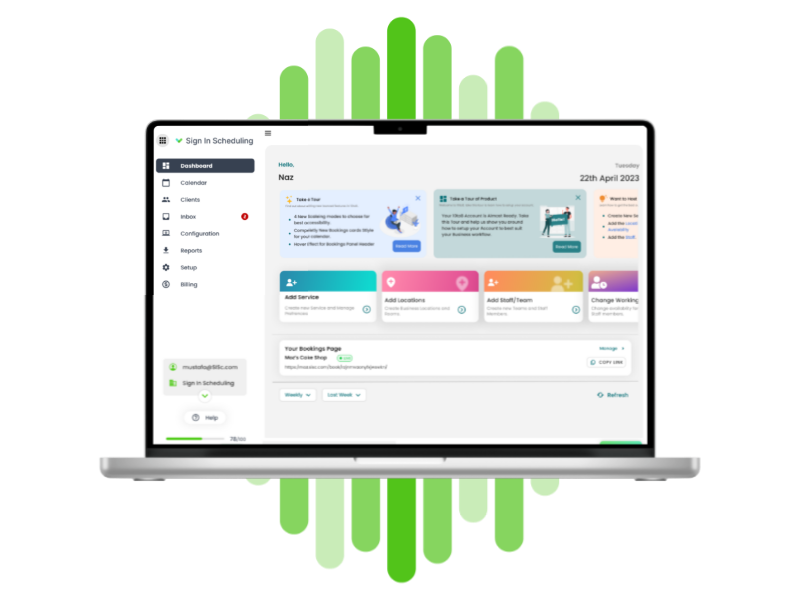As a teacher, you know that student engagement is key to success in the classroom. However, it can...
How to Effectively Organize Your Small Business Finances
Small businesses are the backbone of the economy. According to the World Trade Organization, SMEs (small-and-medium-sized enterprises) make up over 90% of the business population and over 50% of employment in developed economies. That is a huge number! So, if you are a small business owner, it is important to make sure that you are doing everything possible to organize your finances and ensure success.
If you’re like most small business owners, you are always looking for ways to improve your bottom line. One of the best ways to do this is to get your finances in order. This can be a daunting task, but with a little organization and planning, you can set yourself up for success!
So, let’s discuss some tips for organizing your small business finances. We’ll also talk about some of the top mistakes that small businesses make when it comes to money management. So, read on and learn how to take control of your financial future!
What is business finance?
So, what exactly do we mean by business finance? Small businesses need to keep track of many things including inventory, employee salaries, marketing expenses, and more. Ensuring the proper financing for a small business can be a great way to boost revenue, and make sure your business flourishes.
How do you organize small business finance?
To organize your business finance, one of the first things you should do is create a budget. This will help you see exactly what you have to spend. You should also track your expenses carefully so you can see where your money is going each month and where you need to cut back. This will help you find areas where you can save money.
Another important tip is to make sure you are invoicing correctly and on time. This includes sending out invoices as soon as the work is completed and following up with clients who haven’t paid. This will help you get paid faster and avoid late fees.
Finally, it’s important to keep good records of your income and expenses. This will help you at tax time and if you ever need to apply for a loan. You should keep receipts, bank statements, and other financial documents organized so that you can stay productive and so they are easy to find when you need them.
So, here are some of the most important ways to organize small business finance:
Track Your Income
It’s very important for businesses to track their income. This will help you keep an accurate record of what you are making and where your money is coming from.
There are a few different ways to track income. One way is to use accounting software. This can be a great way to keep track of income, expenses, and invoices all in one place. Another way to track income is by using a spreadsheet. This can be helpful if you want to see a more detailed view of your finances, but it can be more complicated to set up and use.

No matter which method you choose, tracking your income is an essential part of small business financing, keeping your money organized, and can even help to increase bookings.
Create a Budget
Creating a budget is another important step in organizing your small business finance. A budget will help you understand what you have to spend, as well as give you an overview of where your money is going and where you can cut back.
When creating a budget, you should start by looking at how much you realistically have to spend each month. From there, you can factor in both your income and expenses. Once you know this, you can start to create a budget that works for your business. From there, the more important thing is to find a method that works for you and stick to it.
Track Your Expenses
Tracking your expenses is another key part of organizing your finances. When you track your expenses, you will see precisely what you’re spending your money on each month.
There are a few different ways to track expenses. One way is the exact same as tracking your income – using accounting software. This can be a great way to keep your income, expenses, and invoices all in one place. Another way to track expenses can simply be by using your bank accounts. If you have a specific account where all your spending comes from, you can use that to view all your transactions and keep track of spending.
Keep Personal and Business Accounts Separate
If you are merging your personal and business finances, you are not alone. However, keeping your personal and business accounts separate is important to help you stay organized and avoid mix-ups.
There are a few different ways to keep your personal and business finances separate. The easiest way is to open a separate bank account for your business. In fact, we highly recommend this because it can help you avoid fees and save money. Having a business account will also allow you to keep on top of taxable expenses much easier.
Make Sure Your Business is Legal
If you’re not tracking how much of your income is taxable, you could be in for a surprise come the new tax year. Make sure your business is legal by getting a tax identification number and keeping track of your income and expenses. You may also need to register your business with the state or local government.
This will help you avoid any unwanted penalties or fines from the government. Is also another great way to stay organized and keep track of your small business finance.
Check with your accountant, tax advisor, or local government to make sure you are doing everything correctly.
Set Aside Money for Taxes
One of the easiest ways of following the step above, is by setting your tax money aside. For example, if you know your tax bracket is 20%, then put 20% of all your income in a separate account to save for taxes. This will help you make sure you have the money when it comes time to pay your taxes.
It’s also a good idea to set aside money for other expenses, like insurance and licenses. This will help you avoid any surprises down the road.
Get a Business Credit Card
If you’re not using a business credit card, you’re missing out on some great benefits. Business credit cards can help you build your business credit, get rewards, and track expenses.
If you are using a personal credit card for your business expenses, you could also be racking up debt in your own name. It’s important to get a business credit card to help you stay organized, track your finances, and build your business’s reputation with credit lenders.
Digitize Hard Copies
When it comes to small business finance, paper is the enemy of an organization. It can be easy to miss something when it’s buried in a pile of documents. So, if you’re still using hard copies to organize your affairs, maybe it’s time to make the switch to digital.
Scanning and digitizing your documents will help you organize and keep track of them more easily. You can use a scanner or even just your phone to take pictures of your documents. Once you have digital copies of your documents, you can store them in the cloud or on an external hard drive. This will help you free up space and keep your documents safe.
There are a lot of benefits to going digital. You can access your paperwork from anywhere, things are more secure, and you can share them with others easily.
Making the switch to digital can be a big project. But, it’s worth it in the end. You’ll be glad you made the switch when you’re able to access your records easily and keep them safe.
Hire an Accountant
If you’re not sure how to handle financing for a small business or just don’t have the time, consider hiring an accountant. An accountant can help you with a lot of the common financial difficulties that small businesses face, such as bookkeeping, tax preparation, and financial planning.

However, hiring an accountant is a big decision. You should only do it if you feel comfortable with the person, they are adequately qualified, and they have sufficient experience. Hiring a dodgy accountant can land you in just as much hot water as not having one at all, so make sure you interview a few different candidates before making a decision.
Use an Accounting Program
If you don’t want to hire an accountant, consider using an accounting program. Accounting programs can also help you track your income and expenses, prepare for taxes, and create financial reports.
But, like with a lot of software, there are a lot of different accounting programs out there so, it’s important to find one that fits your needs. Once you find the right program, it will be a huge help in keeping your finances organized.
Manage Your Time
Of course, in order to organize your small business finance, it’s important to organize your time. Prioritizing is the key to productivity and making sure you have enough time to manage your finances is crucial to keeping everything in order.
One way to do this is to set aside time each week to work on your finances. This can be as little as an hour or two each week. But even a small amount of time can make a big difference and free up some time in your schedule.
Another way to manage your time is to automate tasks. This can include setting up automatic payments, creating templates for invoices and reports, and scheduling reminders. Automating tasks will help you save time and keep your finances organized
Alternatively, you can always hire someone to help you with your finances if you don’t have the time.
Overall…
Organizing your small business finances doesn’t have to be difficult. By following these tips, you can create a system that simultaneously keeps you on track and works for you and your individual business.
These are just a few of the most important ways to organize your small business finance. By following these tips, you can ensure that your business is on a solid financial footing and is on the right track to being financially successful.
Do you have any other tips for financing for a small business? Share them in the comments below!






Blog comments